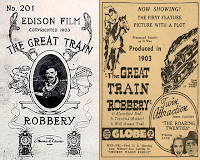 According to research carried out by CostOwl, a company can pay anywhere between $300 and $1000 every month for a high-speed internet connection, but only because internet providers vary their fees depending on the geographic location and the services required. So, why should people pay more for a good internet connection? And what does any of this have to do with a website focused on entertainment? Well, to find out, please have a look at this...
According to research carried out by CostOwl, a company can pay anywhere between $300 and $1000 every month for a high-speed internet connection, but only because internet providers vary their fees depending on the geographic location and the services required. So, why should people pay more for a good internet connection? And what does any of this have to do with a website focused on entertainment? Well, to find out, please have a look at this... 1) To Communicate
1) To Communicate Well, let’s face it, ever since the internet took over the telecommunications landscape, the vast majority of us rely on instant messaging, email, VoIP, and social media to communicate with our family, friends, and work colleagues. So, if we want to take full advantage of these modern, cost-effective, convenient, and reliable communication systems, we need to have a decent internet connection we can depend on. Right?
How does this relate to the entertainment industry? One of the earliest forms of communication dates back to 4000 BC, where people would inscribe their daily events on stone with the use of symbols that represent words, sounds, or physical actions. We now call this form of communication, 'hieroglyphic transcription', although we can also call it, 'sequential storytelling', or, dare I say it, 'comic book storytelling'.
Organizations and individuals from all around the world require a safe, solid, and steady internet connection so they can share their ideas and useful solutions. Otherwise, they won't be able to find new markets, new products, new services, and new business opportunities to explore. So, by setting up a robust connection and establishing a clear and concise e-commerce website, for instance, they can reach out to a wider audience and tell them what they’re all about.
How does this relate to the entertainment industry? When films were first introduced to the American marketplace, circa 1903 to 1911, not a lot was done in terms of promotion because the movie moguls didn't like the idea of increasing the value of their stars (just in case they wanted more money like their Broadway contemporaries). But, as time ticked on, and the film industry grew more popular and more profitable, they branched out and networked with other industries so they could cross-promote each other's wares.
3) To Make Things More Effective
The internet can help organizations create a flexible working environment that can cut down on labor costs, raise staff morale, and automate crucial business processes, such as accounting and finance, HR management, data analytics, and as we've mentioned before, communication. The internet can also be particularly effective when running a digital marketing campaign, as they normally require blogging, SEO, social media marketing, email marketing, as well as other forms of content marketing to widen a business's reach and connect with their current client base.
How does this relate to the entertainment industry? In 1912, Thomas Ince set up the first Hollywood movie studio (named "Inceville"), because before then, there wasn't a single place where people could adequately develop a series of movies under one roof. It was the first of its kind, as it featured production offices, printing labs, dressing rooms, prop houses, elaborate sets, a large commissary, and other necessities required for making a movie without losing a lot of money, time, or resources.
4) To Access Cloud-Based Business Solutions
Cloud computing is a cost-effective way for small-to-medium-sized businesses to set up an IT infrastructure so they can distribute their resources to whoever they so wish. These resources can range from processing power, data storage, online platforms, to enterprise software applications and tools. However, most cloud services are quite demanding in terms of connectivity, so they will need a sturdy internet connection to use them properly.
How does this relate to the entertainment industry? Today, we have YouTube, we have social media, and we have many other varieties of digital-platform that will allow us to 'tell our truths' and 'entertain our masses'. To do this, though, we have to constantly depend on technology to facilitate our needs. Needs, I hasten to add, that reach back to as far as we can go, during a time where our ancestors carved their daily events on stone with the use of symbols that represent words, sounds, or physical actions. So, nothing much has changed then, eh? Apart from the way we do it.
THE INTERNET VERSUS THE EVOLUTION OF THE ENTERTAINMENT INDUSTRY
 Reviewed by David Andrews
on
February 18, 2020
Rating:
Reviewed by David Andrews
on
February 18, 2020
Rating:
 Reviewed by David Andrews
on
February 18, 2020
Rating:
Reviewed by David Andrews
on
February 18, 2020
Rating:







No comments:
Post a Comment